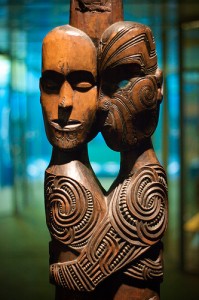 The abortion rights debate looks different for people old enough to remember the days of back alley abortions.
The abortion rights debate looks different for people old enough to remember the days of back alley abortions.Case in point: the other day my my father brought up American politics, since he’s knows it’s my job to follow it (and since we don’t much agree on Canadian politics.) He’s a conservative guy, votes for the Conservative party routinely, likes to call himself “the last Victorian” though he really isn’t. Still, he’s no liberal and he’s pushing 80.
I filled him in on Sarah Palin, in particular, and mentioned she was against all abortion except if the mother’s life is at risk.
His voice turned incredulous and he said, “Don’t people remember what it was like when abortion was illegal? Women with coathangers up their….” His voice trailed off.
After a few moments he continued again, now angry. “How can these people be so stupid? Don’t they know what it was like? All the women who died?”
All I could really say was this: “People don’t learn from other people’s mistakes. Only their own. The generation that remembers what it was like, your generation, is mostly gone. The younger folks, they don’t remember, they don’t know. They don’t understand how bad it was, how many women died, how horrible it was. They weren’t there, and for some reason they won’t listen to those few who were. Those who remember. Those who know.”
The thing that saddens me the most about humanity, that worries me the most, is this shocking inability to understand anything unless they’ve experienced it themself. Wisdom is learning from other people’s mistakes.
It seems like every good thing that was done by older generations is being undone, step by step, by fools who weren’t there, don’t remember, and can’t learn. They stripped the protections meant to stop mass bank failures and a new depression and they keep trying to make sure that women will die in droves by getting rid of the right to safe, legal abortion.
So no, Dad, they don’t remember. If people like Palin and McCain have their way, the horrors you remember from your youth will start happening again. The battles your generation fought, the victories you handed to us, your children and grandchildren, we will squander and have to earn yet again.
And if we do fail to hold onto what you gave us, a lot of women will die because of our stupidity.
(Originally posted Sept. 15th, 2008. It seems worth re-posting today.)

